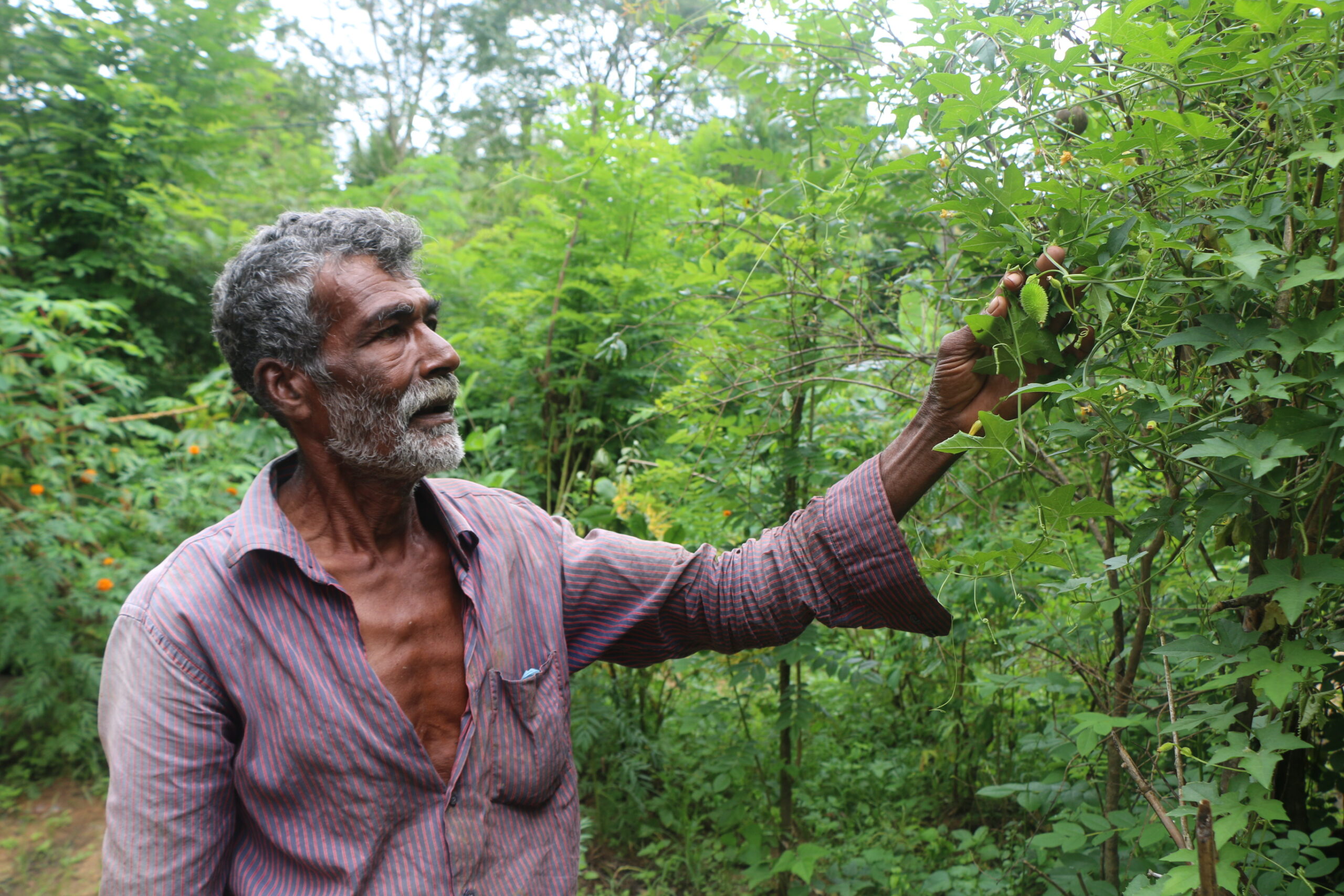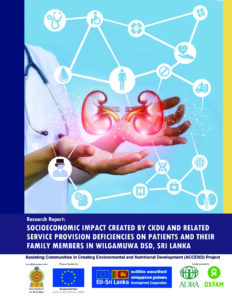Chronic Kidney Disease of Unknown Origin (CKDu) is a disease highly prevalent in the rural communities of Sri Lanka. In 2004, the total number CKDu patients reported was 7,763 and in 2010 the number of patients rapidly augmented up to 21,219. As of 2017, the reported number of patients was 47,891. Due to the rapid progress of the numbers, the social and personal burden coupled with the disease further exacerbated lives of those affected and their families.
ADRA Sri Lanka and Oxfam Sri Lanka through their European Union funded Assisting Communities in Creating Environmental and Nutritional Development (ACCEND) project facilitated a research to identify the socio-economic impact created by the disease and to lobby relevant authorities and policymakers to take necessary measures to better support those affected.
The study was carried out with the support of APK Researchers headed by Dr. Pasan Jayasinghe (Regional Epidemiologist of Kandy) in the Wilgamuwa Divisional Secretariat Division of the Matale district. Out of the 1,161 registered patients diagnosed with CKDu for more than one year in the DS division, 262 patients were sampled for the study. Furthermore, the collected data were analyzed by utilizing appropriated statistical parameters – using both descriptive and comparative calculations.
According to the study, majority of the victims were diagnosed at a very young age. A male predominance was also noted among the patients and most of them were breadwinners of their respective families. The study also revealed that even though the required health facilities have been established, the patients face numerous difficulties in obtaining these services. Additionally, it discloses that numerous economic hardships are being generated due to the condition and that maintaining optimum psychological wellbeing among the patients is a challenge. It’s also evident that patients do not possess adequate and accurate knowledge regarding the disease condition which needs to be addressed directly and in a well-organized manner.
The study further shows that measures established within the health care system for prevention, early detection, and delaying complications of CKDu as well as primary and secondary prevention strategies with recommended targets demonstrate minimum integration with patients and the general population. Lack of coordination for the health care services established and continued supply of patients’ pharmaceutical requirements were other gaps observed when conducting the study. Besides, the study also shows that the number of patients with treatment defaults was greater and patients rapidly advance to the end stage of the disease due to the lack of integration of patients into the healthcare system. It was also evident that the attention of the health care sector and other sectors specifically focused on the treatment measures and strategies observed to promote primary and secondary preventive measures were low.
Upon identifying the existing gaps through the findings of the research, the project presented several policy recommendations and created space for further discussion on the matter by organizing a symposium. Various officials representing the health sector were present at the symposium including the Governor of the Central Province, Hon. Lalith U. Gamage.







